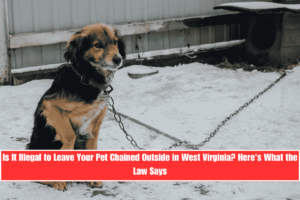Nevada is a “stand your ground” state, meaning individuals have no legal duty to retreat before using force—including deadly force—in self-defense, provided specific conditions are met.
Key Provisions of Nevada’s Stand Your Ground Law
- No Duty to Retreat: If you are lawfully present in a location, you do not have to attempt to escape or withdraw from a confrontation before defending yourself with force, even deadly force.
- Who May Use Force: The law applies to defending yourself or others from imminent harm.
- When Deadly Force is Justified: Deadly force is only justified if:
- You reasonably believe you or someone else faces an immediate threat of death or serious bodily harm.
- You are not the original aggressor (you did not start the conflict).
- You are not engaged in illegal activity at the time.
- You are in a place where you have a legal right to be.
Legal Requirements for Self-Defense
To successfully claim self-defense under Nevada’s stand your ground law, the following must generally be true:
- Imminent Threat: The danger must be urgent and pressing, not a vague or future threat.
- Reasonable Fear: A reasonable person in your position would also fear for their life or safety.
- Proportional Response: The amount of force used must be proportionate to the threat faced. Using excessive force can void a self-defense claim.
- No Revenge: The use of force cannot be motivated by revenge.
Castle Doctrine vs. Stand Your Ground
- Castle Doctrine: In your home, vehicle, or occupied habitation, you may use deadly force against intruders if you reasonably believe they intend to commit a violent crime, even if your personal safety is not in immediate danger. The castle doctrine is a related but distinct concept that further strengthens self-defense rights in these locations.
Limitations and Considerations
- Property Defense: The law is more restrictive regarding the use of deadly force to protect property alone. Deadly force is generally reserved for situations involving imminent threats to persons, not just property.
- Fact-Specific: Each self-defense claim is highly fact-dependent. Courts will closely examine the circumstances to determine if the use of force was reasonable and justified.
Table: Nevada Stand Your Ground Law
| Requirement | Must Be Met? |
|---|---|
| No duty to retreat | Yes |
| Lawfully present | Yes |
| Not the initial aggressor | Yes |
| Not committing a crime | Yes |
| Reasonable fear of imminent harm | Yes |
| Proportional force used | Yes |
Nevada’s stand your ground law grants broad rights to defend oneself or others without retreating, but only under strict conditions. The law does not allow for the use of deadly force based on a mere fear of harm or in situations where retreat would be safer and reasonable. Each incident is evaluated on its facts to ensure the response was justified.
Sources
[1] https://giffords.org/lawcenter/state-laws/stand-your-ground-in-nevada/
[2] https://www.lvcriminaldefense.com/nevadas-self-defense-and-stand-your-ground-laws/
[3] https://en.wikipedia.org/wiki/Stand-your-ground_law
[4] https://www.ncsl.org/civil-and-criminal-justice/self-defense-and-stand-your-ground
[5] https://thedefenders.net/blogs/self-defense-in-nevada/

















Leave a Reply